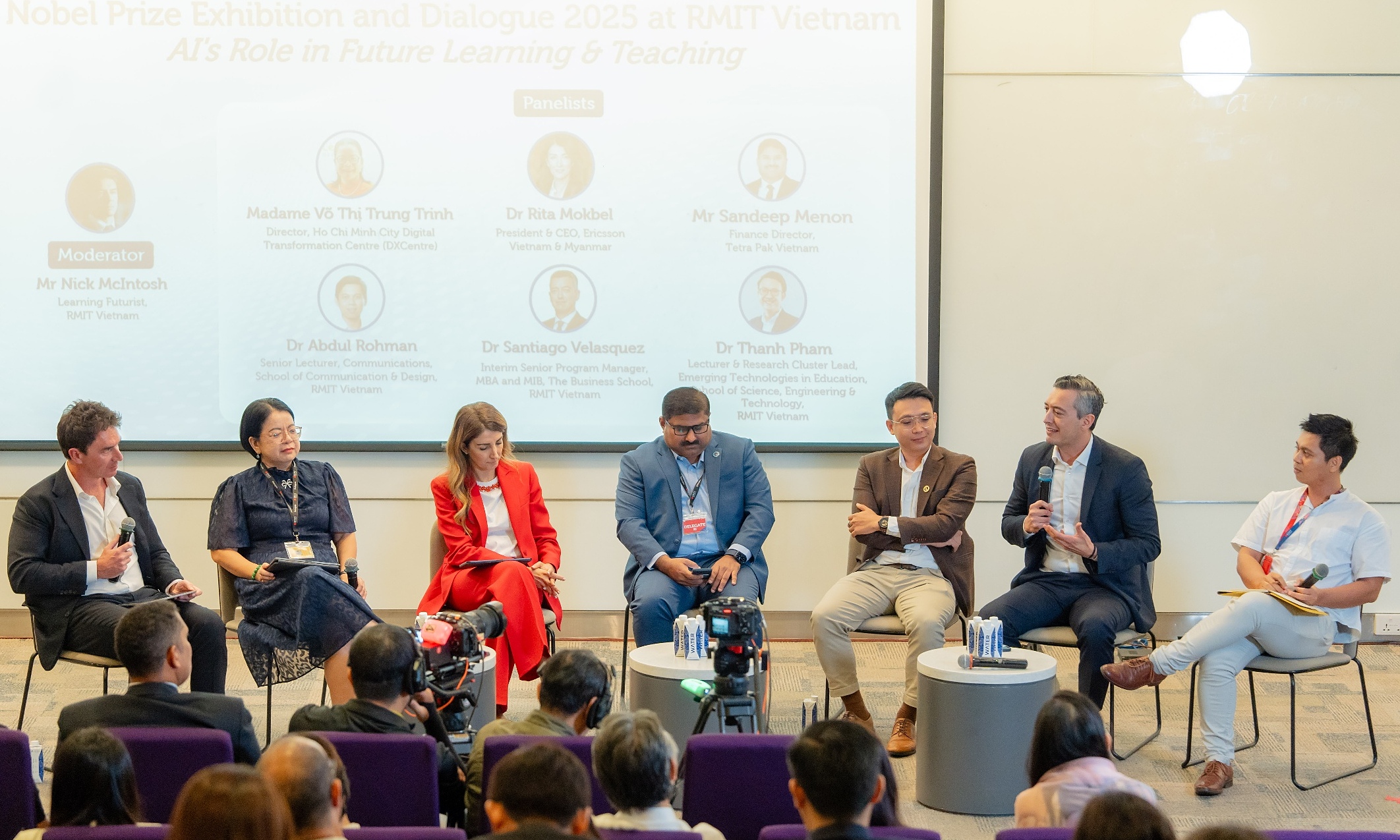
The Embassy of Sweden and RMIT Vietnam are presenting the Nobel Prize Exhibition and Dialogue 2025 from Sept. 8–19, bringing together delegates, academics, and students for a special program that honors the Nobel legacy while marking 55 years of Sweden–Vietnam diplomatic ties and 25 years of RMIT in Vietnam.
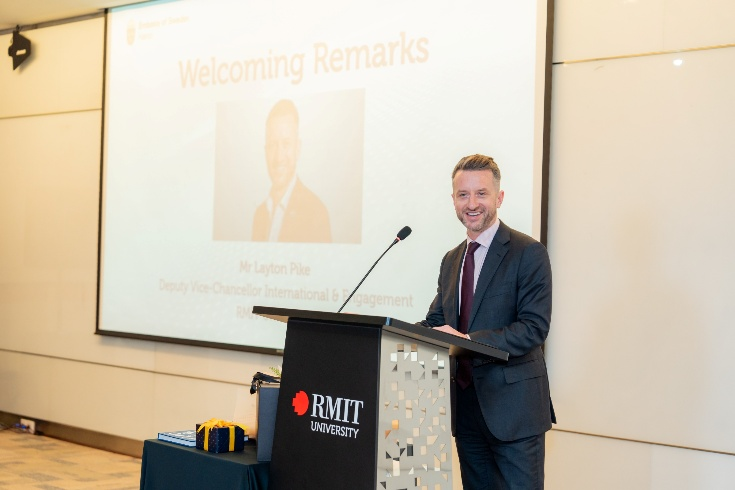 |
| Layton Pike, Deputy Vice-Chancellor International and Engagement, RMIT University, delivers his speech. Photo courtesy of RMIT |
Produced by the Swedish Institute, the exhibition "The Nobel Prize" traces the award's history, milestones, and the scientific and cultural breakthroughs it has recognized. Over nearly two weeks, it offers students, educators, and the wider community fresh perspectives on how Nobel laureates have helped tackle global challenges.
The program's centerpiece was the Nobel Prize Dialogue on the afternoon of Sept. 15, themed "AI's role in future learning and teaching." Held in a hybrid format, the event drew roughly 300 participants, including senior representatives of the Embassy of Sweden, international scholars, industry leaders, and RMIT students.
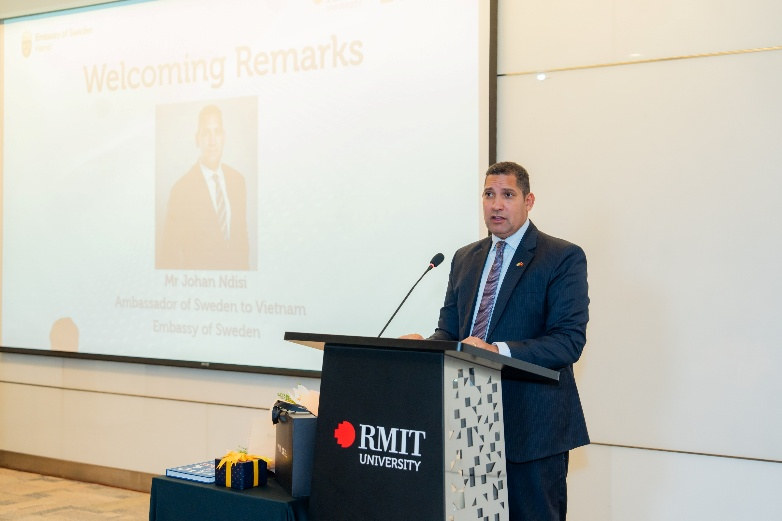 |
| Johan Ndisi, Ambassador of Sweden to Vietnam, delivers the welcome speech. Photo courtesy of RMIT |
Joining virtually from Sweden, three renowned academics delivered keynotes spanning the prize's history, the process behind selecting a physics laureate, and the imperative for responsible artificial intelligence.
Dr. Gustav Källstrand, senior curator at the Nobel Prize Museum, shared insights on how the prize is managed and how its public image has evolved. Professor Ulf Danielsson, a theoretical physicist at Uppsala University and member of the Nobel Committee for Physics, offered a behind-the-scenes look at selection dynamics and reflected on recent developments at the intersection of physics, AI, and machine learning. Closing the session, Professor Virginia Dignum, Professor of Responsible Artificial Intelligence at Umeå University, stressed the need for AI that is trustworthy, collaborative, and socially responsible.
Building on these perspectives, a panel featuring experts from the Ho Chi Minh City Digital Transformation Centre, Ericsson Vietnam and Myanmar, Tetra Pak Vietnam, and RMIT Vietnam discussed how AI is reshaping teaching methods; the digital skills learners will need; challenges around personal data; and new models of collaboration among government, universities, and industry.
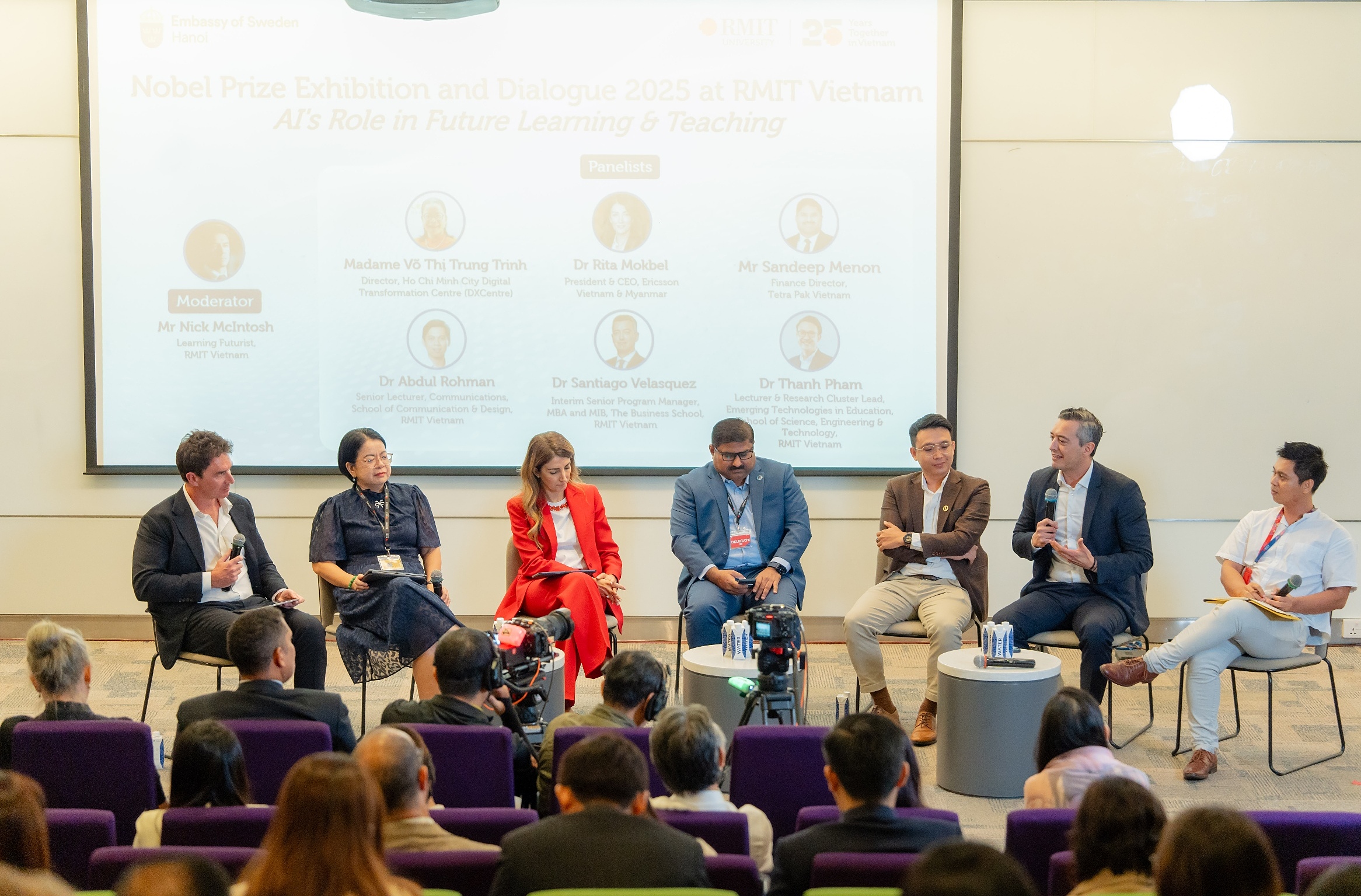 |
| Experts in panel discussion. Photo courtesy of RMIT |
Sweden's Ambassador to Vietnam, Johan Ndisi, remarked: "The Nobel Prize stands as a beacon of human achievement and global cooperation. This dialogue and exhibition celebrate innovation while reinforcing Sweden's support for Vietnam's digital transformation. As Vietnam advances under Resolution 57, embracing science, technology, and AI as drivers of national development and growth, this event offers a timely platform to inspire young minds and strengthen our bilateral ties."
Layton Pike, Deputy Vice-Chancellor International and Engagement, RMIT University, added: "The spirit of excellence and innovation that the Nobel Prize represents is a powerful inspiration for all of us, and at RMIT we share that commitment to pushing the boundaries of knowledge and nurturing the next generation of visionary leaders, researchers, and entrepreneurs."
The event also reflects a new chapter in cooperation between the two countries. In June 2025, Swedish Prime Minister Ulf Kristersson and Vietnamese Prime Minister Pham Minh Chinh signed a Sectoral Strategic Partnership to deepen collaboration in science, technology, innovation, and digital transformation. This year's exhibition and dialogue bring that agreement to life, underscoring Sweden's long-standing role in Vietnam's development—from humanitarian support to cutting-edge work in green technology and AI.
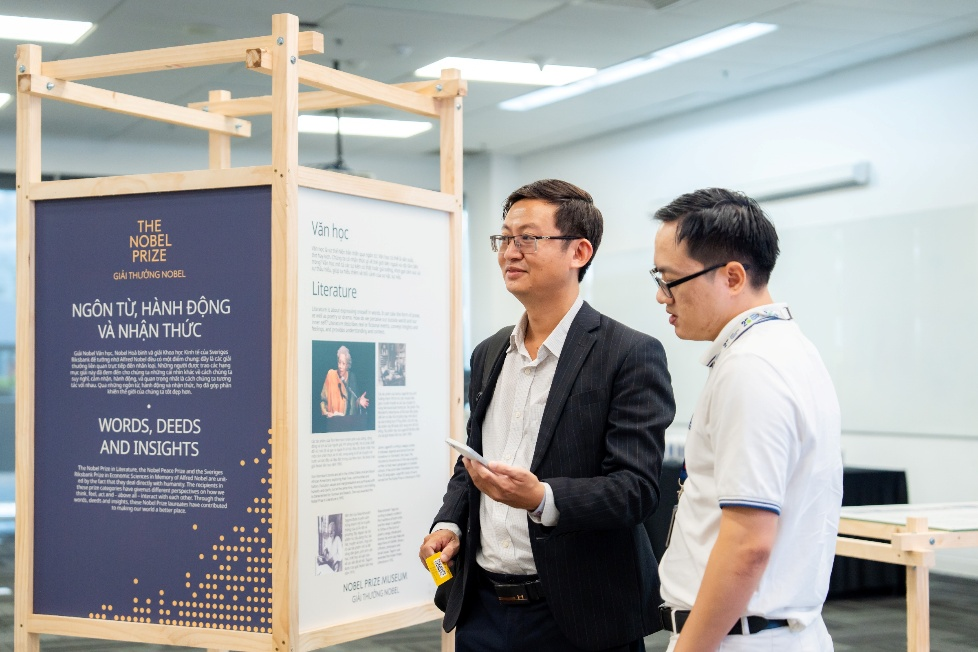 |
| Visitors explore displays at the Nobel Prize Exhibition produced by the Swedish Institute. Photo courtesy of RMIT |
The program aligns with Resolution No. 57-NQ/TW of the Politburo (December 2024), which identifies science, innovation, and digital transformation as key drivers of national development. By 2030, Vietnam aims to lift R&D spending to 2% of GDP, expand the digital economy, and position itself as a regional hub for AI and advanced technologies. The Nobel Prize Exhibition and Dialogue 2025 contributes to this vision by inspiring young people, fostering university–industry cooperation, and nurturing a culture of innovation.
By hosting the Nobel Prize Exhibition and Dialogue 2025, RMIT Vietnam reaffirms its commitment to educational and research excellence. The event provided a platform for global experts and local leaders to exchange insights and highlighted RMIT's role as a university of impact in Asia Pacific—cultivating the next generation of leaders while advancing an environment where innovation, education, and international cooperation can thrive.
Post a Comment